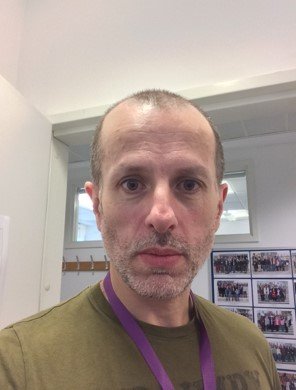Finding new ways to treat aggressive chronic myeloid leukaemia
Chronic myeloid leukaemia can sometimes stop responding to certain treatments and occasionally it can become a very aggressive disease. In this project, the team want to understand how we can tackle this.

Professor David Vetrie
The challenge
Chronic myeloid leukaemia (CML) is a type of blood cancer caused because there is an error in something called a blood stem cell. This stem cell is the earliest version of any of our blood cells and can become many different cells. If these stem cells become faulty, as they do in CML, it can mean blood cells don’t work properly. Luckily, we have treatments that can keep this cancer under control for many people, but some cancers can stop responding to this treatment and others can become more aggressive. In this project the team want to find ways to overcome this.
The project
In this study, Professor David Vetrie and his team want to find ways to treat people whose cancers have stopped responding to treatment. They also want to understand more about how and why CML suddenly become very aggressive, to try and find ways to stop this from happening. The team have identified a protein inside our cells that they think are responsible for these two things happening and will see whether targeting this in the lab.
The future
If the findings from this project are positive, we could find new ways to treat CML that has stopped responding to treatment and we may also find new ways to treat the disease if it become particularly aggressive.
